In October, four pro-democracy Returning Valiant members became the first minors to be sentenced under the Beijing-imposed national security law. Student Politicism also saw former leaders jailed. A court ruled that journalistic materials do not have absolute immunity when it comes to criminal and national security cases. And Chief Executive John Lee put emphasis on national security and national education in his first Policy Address.
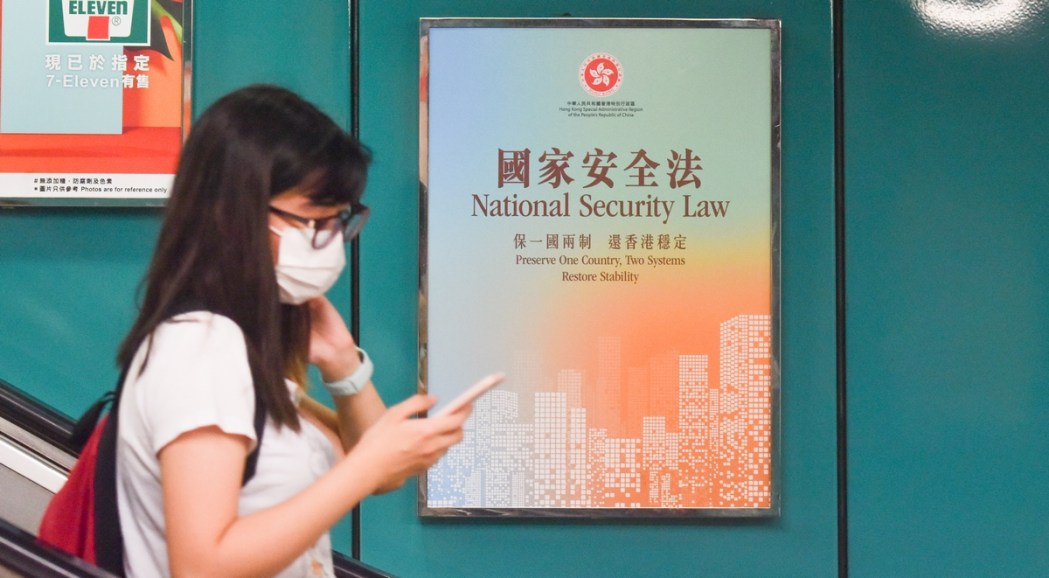
HKFP continues its monthly roundup of developments.
Returning Valiant
A Hong Kong court sentenced five teenage members of a self-proclaimed “revolutionary” political group Returning Valiant to a training centre for conspiring to incite subversion over calls for an “armed uprising.” Four of them became the first minors to be sentenced under the security law.
Training centres are alternatives to imprisonment for those aged below 21 – the period of detention ranges from six months to three years.
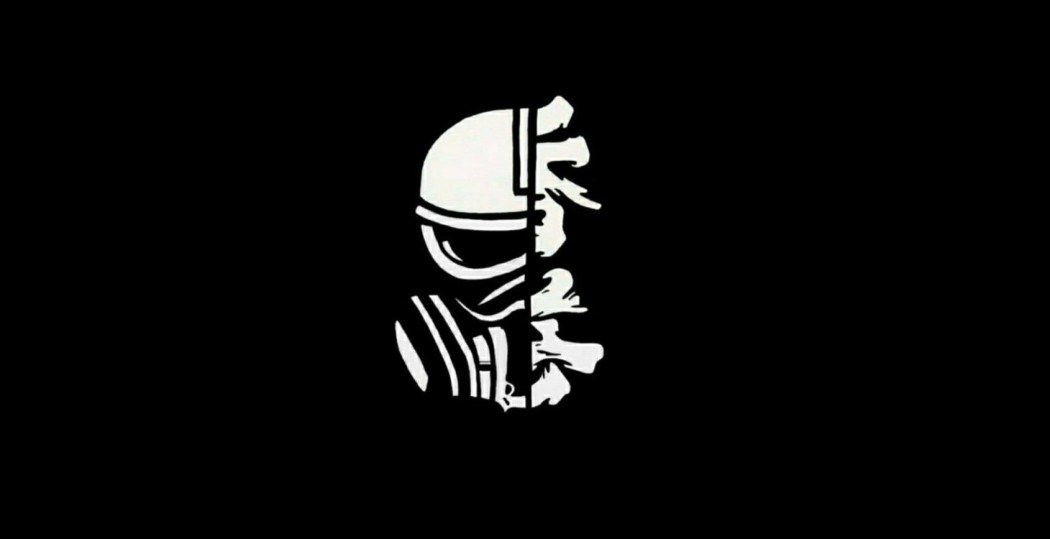
The five included Yuen Ka-him, 17, Wan Chung-wai, 16, Leung Yung-wan, 17, Tseung Chau Ching-yu, 17, and Kwok Man-hei, 19. They were among seven people who earlier pleaded guilty to the subversion charge. Their two remaining co-defendants will be sentenced in November.
District Judge Kwok Wai-kin, who is also a handpicked national security judge, said offences committed by all seven defendants were of a “serious nature,” as the group had repeatedly spread subversive messages via street booths and online platforms, including promoting “bloodshed revolution” and urging people to “fight without a bottom line.”
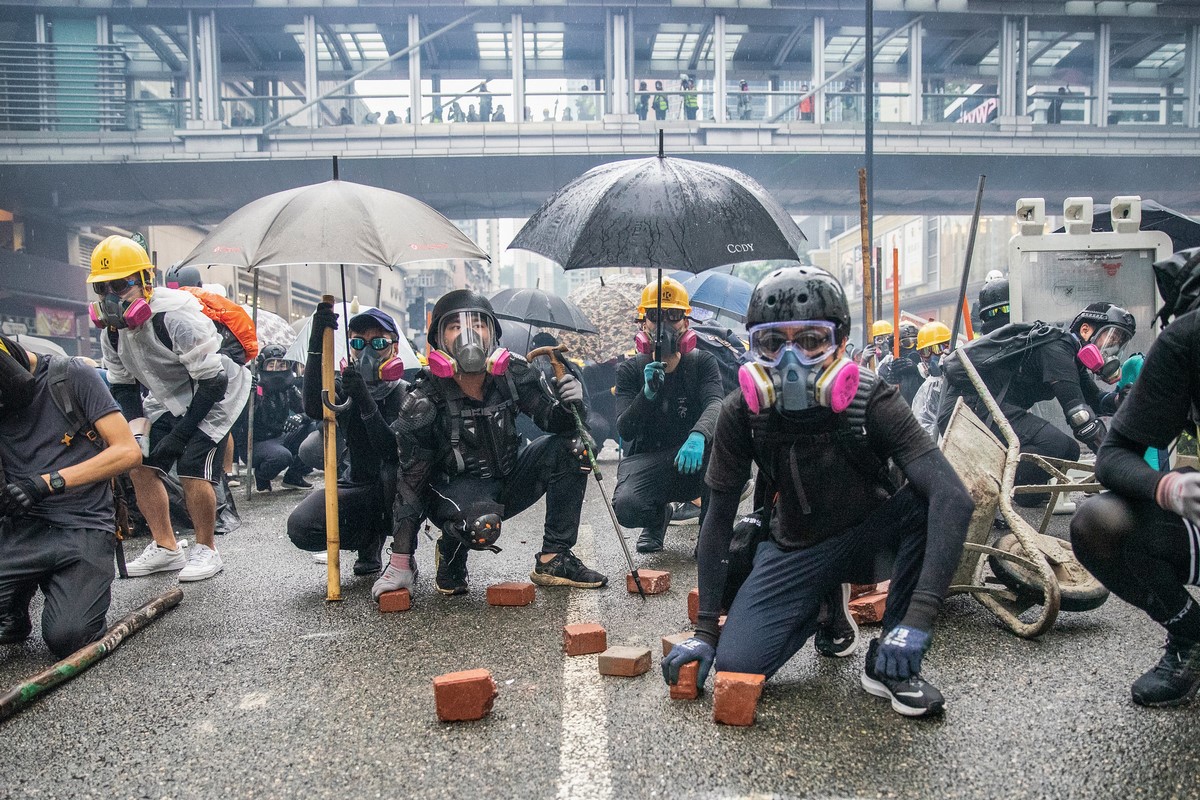
According to the security law, such offences carry a penalty of fixed-term imprisonment of no less than five years but not more than 10 years. Kwok said he only “downgraded” the level of severity to “minor” owing to the defendants’ young age and immaturity.
The sentencing drew international attention, with the United Nations saying it was “alarmed.” The UN Human Rights Office spokesperson said the body has urged the Hong Kong authorities to repeal the law and refrain from using it, but the request fell on deaf ears.
The Hong Kong government hit back at the UN criticism, saying the security law was enacted to “restore the enjoyment of rights and freedoms that people in Hong Kong had been unable to enjoy during the period of serious violence between June 2019 and early 2020.”
Student Politicism
Another now-defunct pro-democracy activist group, Student Politicism, also saw four of their members sentenced to up to three years in prison or a training centre after they pleaded guilty in July to conspiracy to incite subversion under the national security law. They included ex-convenor Wong Yat-chin, ex-secretary general Chan Chi-sum and ex-spokespersons Jessica Chu and Alice Wong.
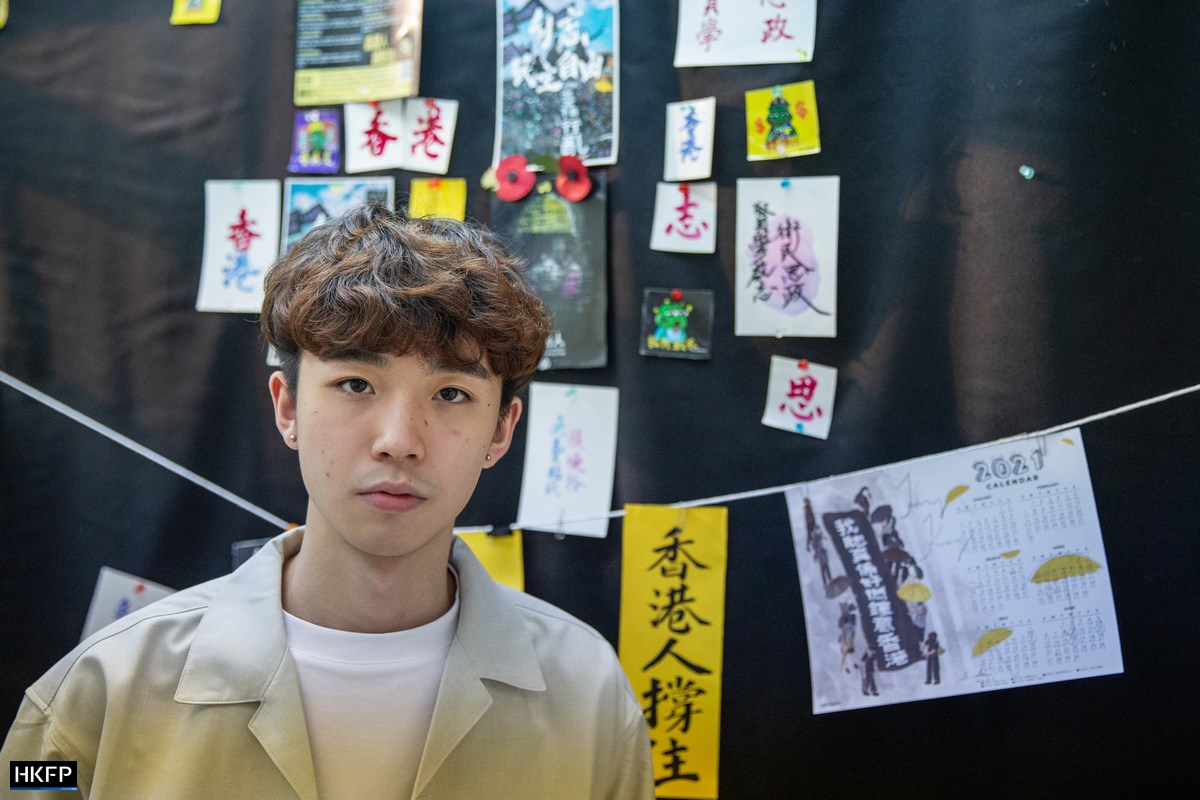
The group was said to have promoted the concept of a “Hong Kong nation” and encouraged other people to take part in a resistance by organising street booths.
The defendants were also said to have used the protest slogan “liberate Hong Kong, revolution of our times.” Despite the fact the High Court had yet to rule on whether the slogan had the capability to incite others to commit secession, designated national security judge Kwok Wai-kin said the group used the phrase to promote Hong Kong independence.
Jimmy Lai
Jailed media tycoon Jimmy Lai lost a bid to prevent police going through journalistic material on phones seized from him earlier. He had sought to block the search warrant issued under the national security law.

Lai, 74, who founded the defunct pro-democracy tabloid Apple Daily, faces four charges, including two counts of conspiracy to collude with foreign countries or external elements, one count of collusion with foreign forces, and one count of conspiracy to print, publish, sell, offer for sale, distribute, display and/or reproduce seditious publications.
A three-judge panel ruled that “despite its importance to the freedom of the press, the protection afforded to journalistic material is not absolute.”
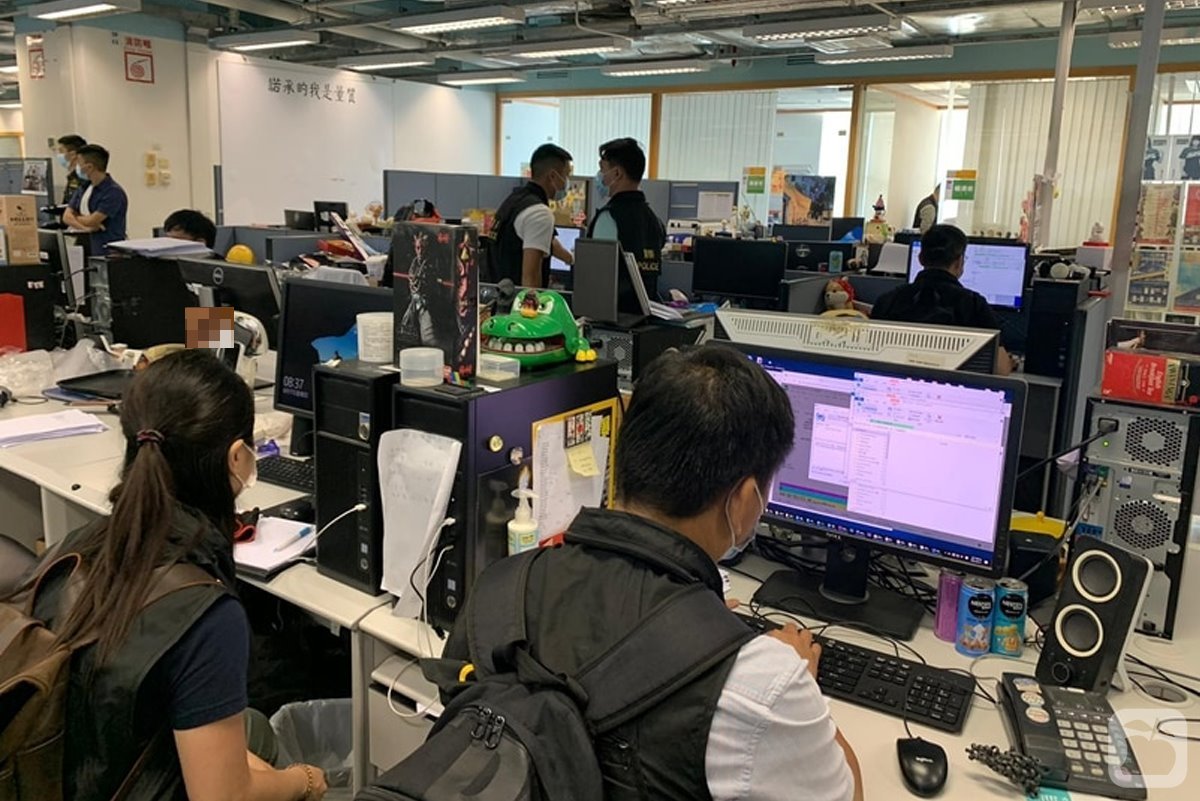
Excluding journalistic material from the definition of “specified evidence” would also reduce the effectiveness of police investigations and prevent the national security law from serving its legislated purpose, which was to “effectively” stop, prevent, and punish offences endangering national security, the judges wrote.
Meanwhile, Lai was allowed by a court to hire a barrister from the UK to handle his high-profile national security trial. King’s Counsel Timothy Owen is set to represent Lai in the trial scheduled in December. King’s Counsels are the equivalent of senior counsels in Hong Kong, and they require permission to be allowed to represent clients in the city’s courts.

The decision was met with opposition from the secretary for justice and the Bar Council of the Hong Kong Bar Association, arguing the issues involved in the case were not of “unusual difficulty or complexity.” The Department of Justice later officially filed an appeal.
Sedition cases
Another high profile sedition case in October involved popular radio host Edmund “Giggs” Wan. The 54-year-old was sentenced to two years and eight months in prison after he reached a plea agreement with the prosecution over his sedition and money laundering charges.
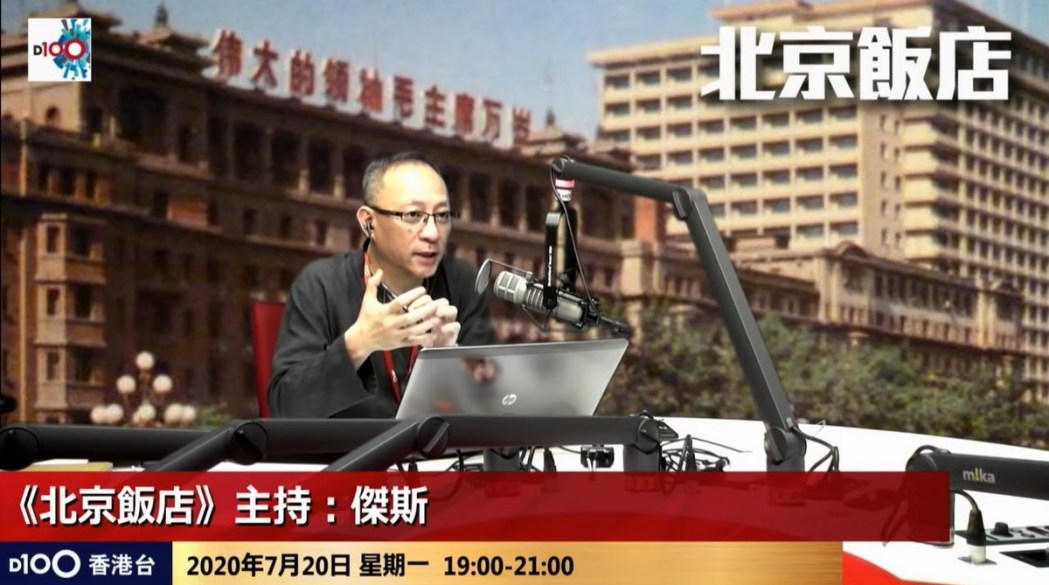
The sedition charge related to 39 programmes hosted by Wan on D100 radio between February and November 2020 that contained “seditious” content, some of which “incited others to resist or overthrow the Chinese Communist Party” and “promote Hong Kong independence.”
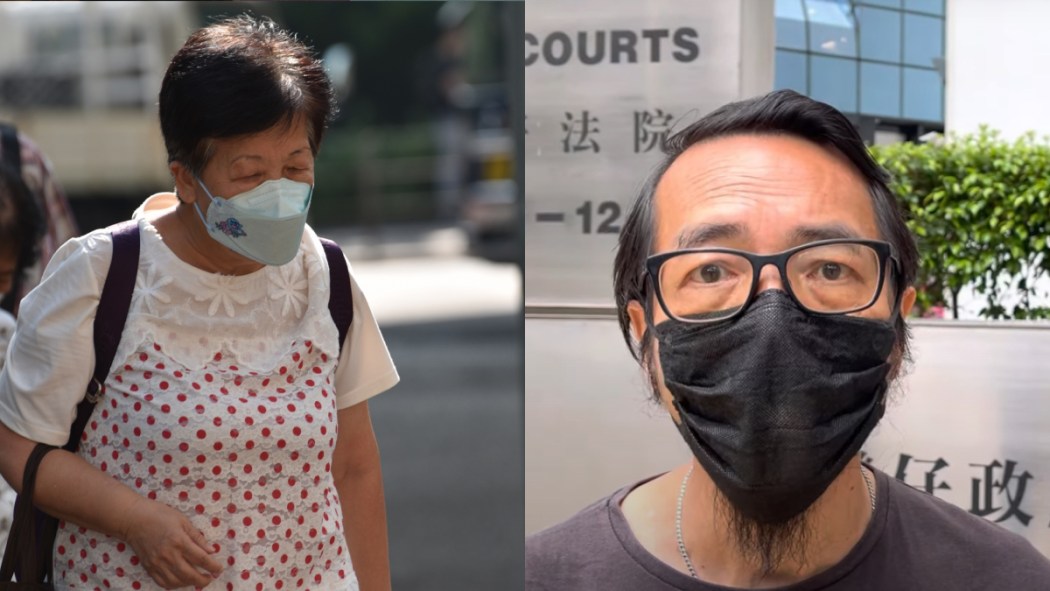
Other cases included two court spectators, who were jailed for up to one year for “uttering seditious words” after clapping and criticising a magistrate during a court hearing that involved activist Chow Hang-tung. One of them was also convicted of committing “acts with seditious intention” for operating a YouTube channel that commented on protest-related cases.

An autistic civil servant from the Inland Revenue Department was also jailed for six months for publishing “seditious” online posts on discussion forum LIHKG between January 2020 and August 2022, advocating independence for the city and “actual armed resistance movements” against the authorities.
Separately, a mainland Chinese man who held a work visa in Hong Kong was arrested on suspicion of breaching the sedition law. The man, who is an engineer, allegedly put up posters with protest slogans related to Covid-19 policies which could “provoke hatred or contempt” against the Chinese leader.
Policy Address
National security was one of the main topics in Chief Executive John Lee’s maiden Policy Address. He announced that the city will bring laws against insulting the regional flag and emblem in line with those pertaining to the national flag.

Lee also promised to embark on preparatory work for the city’s local security law – Article 23 – despite taking the legislation off the 2022 Legislative Council schedule. He said the government wanted to make sure the law – which was shelved in 2003 amid mass protest – was “truly effective” when implemented and that more in-depth and comprehensive studies were needed.

The address also gave focus to promoting national education, earmarking HK$60 million for kindergartens to organise activities for young pupils to “learn Chinese culture from an early age.”
More teachers will also be required to pass a new Basic Law and national security law test prior to their employment. Newly appointed educators at public sector schools, as well as those at Direct Subsidy Scheme Schools and kindergartens joining a government scheme will be subject to the requirement from next school year.
Ming Pao cartoon
Hong Kong police expressed “strong concerns” over a satirical cartoon published in the Ming Pao newspaper that contained what they called “misleading content,” according to local media reports.
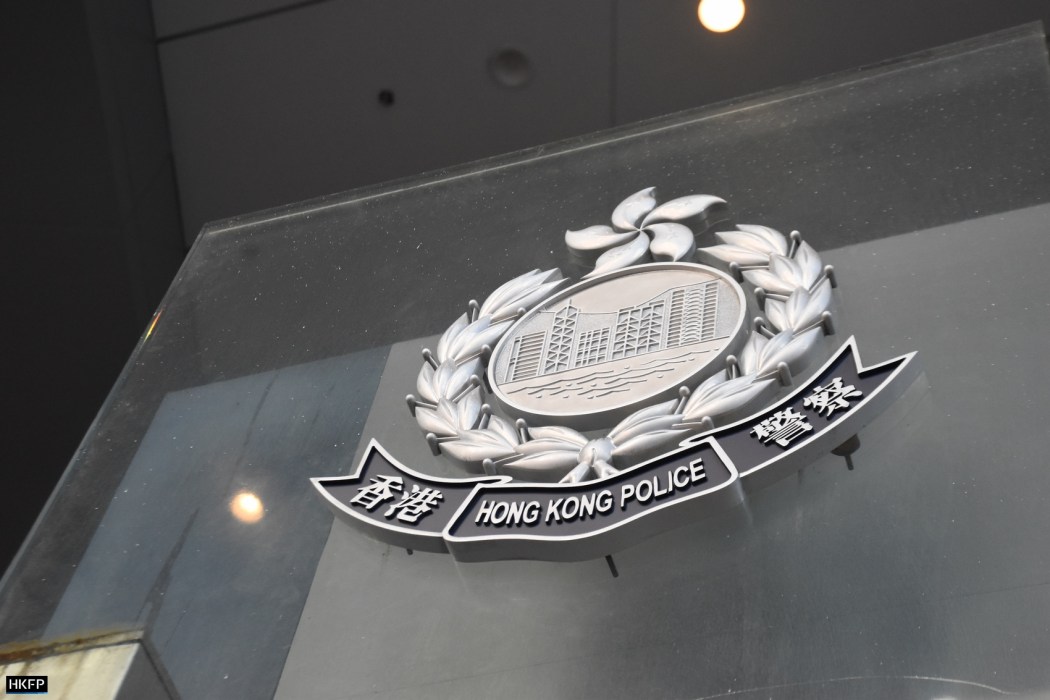
The illustration in question depicted officers outside a school in full riot gear. “What have the students done today, headteacher Chan?” the police ask a bespectacled woman, who lists their offences – swearing, losing an eraser, having laser pointers in their bags and talking back to and allegedly intimidating teachers.
A number of political cartoonists have left Hong Kong in recent months, with many citing concerns about artistic freedom in the city. Hong Kong Worker, vawongsir and Ah To, whose work was also published in Ming Pao, all announced their departures earlier this year.
Library content tightening
Hong Kong’s public libraries added rules to writing contests in October – including one targeting children – stating that entries shall not be contrary to national security interests.

New terms in the application forms for the 32rd Chinese Poetry Writing Competition, and for 4.23 World Book Day Competition, state that submissions must not breach Hong Kong laws including the national security legislation, and that in the case of a breach, the organiser will not be held legally responsible.
Both contests are organised by Hong Kong Public Libraries under the Leisure and Cultural Services Department.
Declining rule of law index
Hong Kong’s ranking in the World Justice Project Rule of Law index was downgraded by three positions to 22nd, with a senior advisor at the research organisation saying that the implementation of the national security law may have contributed to the city’s decline. The list included 140 countries and jurisdictions.

The Hong Kong government criticised the downgrade, claiming it could indicate “a lack of an accurate and overall understanding of the real situation.” It also said Hong Kong ranked higher than “some western countries which often unreasonably criticise the rule of law and human rights situation” of the city, referring to the US.
Meanwhile international press group International Federation of Journalists (IFJ) also blamed the security law as the direct or indirect reason behind a massive wave of closure of media outlets in Hong Kong, such as Apple Daily, Stand News, Citizen News and Factwire. The IFJ urged the global community to continue its condemnation on the “media offensive” by the authorities.
Total arrests
As of October 27, a total of 231 people had been arrested for national security-related offences since the law came into force on June 30, 2020, according to figures provided by the Security Bureau. So far, 138 individuals and five companies have been charged, and 41 people have been convicted.
The figures cover both people arrested under the national security law and those held under a separate law covering sedition. The Security Bureau did not provide separate figures for sedition offences, despite having done so previously.
Support HKFP | Policies & Ethics | Error/typo? | Contact Us | Newsletter | Transparency & Annual Report | Apps
Help safeguard press freedom & keep HKFP free for all readers by supporting our team
























